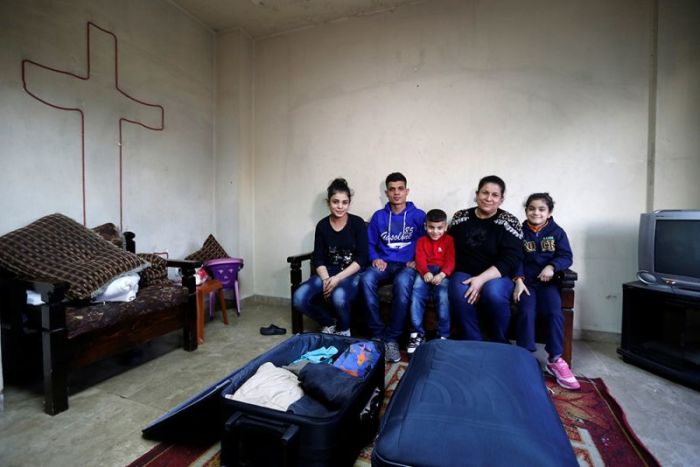Trump Plan to Prioritize Religious Minority Refugees Is American Tradition, Experts Say

Walther said that the Lautenberg amendment passed again in 2015 with bipartisan co-sponsorship and "not a whimper of protest."
"Whether you want to go back 100 years or you want to go back a year, there are plenty of examples of this sort of on the basis that a religious group was persecuted," Walther stated.
In addition, legislation introduced in the House last September to create a special category in the refugee determination process for religious minorities facing persecution in Iraq and Syria was co-sponsored by both Republican and Democratic members.
Walther added that times in American history in which the government has not done enough to help the persecuted religious minorities have produced "a blot on the history of this country."
"We have had some terrible moments where we didn't do it," Walther said. "We turned around the SS St. Louis in 1939. Known as the ship of the damned. I think the question is, since we all understand how problematic that was, don't we want to do better going forward? We did better as the war went on."
The SS St. Louis carried over 900 Jewish refugees from Nazi Germany. The ship was denied entry to the United States, Cuba and Canada. Those refugees were finally accepted by European Countries.
Other prominent religious freedom advocates have signaled their support for prioritizing persecuted religious minority refugees.
"We have prioritized Christian refugees because we prioritize people that are persecuted for their faith. So, I am frankly pretty shocked at the Christian community in the United States that has made such huge efforts because of a temporary ban but didn't seem to lift a finger for Christians being slaughtered in Sudan or in Iraq and Syria and many other places," Faith McDonnell, the director of religious liberty programs at the D.C.-based Institute on Religion & Democracy, told CP on Friday. "We need to get our priorities in order."
Archbishop of Erbil Bashar Warda told Crux that he does not think the order will make things any harder for the persecuted Iraqi Christian minorities and wonders where all the protestors of Trump's order were when IS was invading the homes of Yazidis and Christians.
"[O]ur communities are disappearing from constant persecution, and for years the American government didn't care. Now when someone tries to help us, we have protesters telling us that there can be no religious basis for refugee status even though the UN treaty and American law say that religious persecution is a major reason for granting the status, even though ISIS targeted people primarily on the basis of religion," Warda said. "I am not saying that any group should have a blanket preference when it comes to being admitted as a refugee in the United States. Such a policy would not be right and would clearly be against our Catholic faith and teaching. And that is not the policy as I understand it."
"Most Americans have no concept of what it was like to live as a Yazidi or Christian or other minority as ISIS invaded," he added. "Our people had the option to flee, to convert, or to be killed, and many were killed in the most brutal ways imaginable. But there were none of these protests then of ISIS's religious test."
Nina Shea, the director of the Hudson Institute's Center for Religious Freedom, told The Washington Post that any order that "gives refugee priority to individual claims from persecuted religious minorities, whether Christian, Yazidi or Muslim, is welcome news."
McDonnell explained that helping persecuted religious minorities is a much bigger task than simply relocating them. Considering most Iraqi and Syrian Christians don't go to United Nations refugee camps due to fear of being persecuted by extremists in the camps, displaced Christian communities have received little, if any, assistance and aid from the United States and United Nations.
It should also be noted that in 2016, less than one percent of the Syrian refugees resettled in the U.S. were Christian, while over 98 percent were Sunni Muslims. Walther said that "the numbers of Christians entering from Syria have been 20 times lower than their percentage of population in fiscal year 2016." He added that Yazidi and Shiite numbers were also "incredibly low."
"It is not a matter of just letting the Christians in because most of them would like to stay where they are," McDonnell explained. "It's a matter of helping where they are. They are not even in refugee camps because most people aren't even in refugee camps because it is too dangerous for them. If someone feels like they have a call to help refugees, then go over Erbil and help your Christian brothers and sisters too."




























